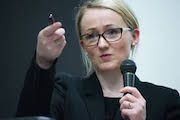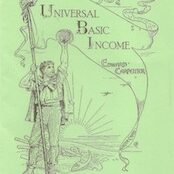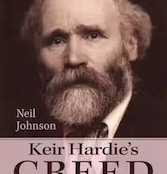DAVID CONNOLLY reports from last week’s Co-operative Solidarity conference in Manchester.
“Co-ops are at the heart of Labour’s economic programme.” That was the key message from Shadow Business Minister Rebecca Long-Bailey at the Co-operative Solidarity conference in Manchester on 16 February. Drawing attention to the ‘right to own’ commitment in Labour’s general election manifesto last year, she told the audience of 120 people that a Labour government would give workers the legal right to buy their own company if it was put up for sale by existing owners.
This is a proposal which, potentially at least, has major implications for the traditional concept of private ownership rights, although it also raises some challenging questions about the capacity of the co-operative movement to deliver the training and education people would need to turn it into a reality.
Nevertheless, in her enthusiastic speech Long-Bailey also said that Labour’s discussion paper, Alternative Models of Ownership, could provide a route map for the co-operative sector, noting that Labour has commissioned the New Economics Foundation and the Co-operative Party to jointly develop practical proposals for its implementation. In this respect, a reassessment of the innovative work carried out by the GLC’s Greater London Enterprise Board in the first half of the 1980s, some of which succeeded and some of which didn’t, could well be useful.
Interestingly, she also referenced the plans of the Lucas Aerospace workers in the mid-1970s to convert the firm’s armaments manufacturing to socially useful production. This would be a welcome rehabilitation of one of the most imaginative and inspiring initiatives to come from the British Labour movement, one encouraged by Tony Benn when he was the Minister of Industry, much to the irritation of Harold Wilson and the leadership of the engineering workers’ union (the AUEW) at the time.
It is clear that positive links are now being re-created between the different wings of the wider movement. Both Ed Mayo from Co-operatives UK and Carl Roper from the TUC talked about the need to engage with self-employed workers, who now number some five million of whom 70 per cent do not have a pension. They drew attention to the report drawn up by both organisations, in conjunction with the Co-operative College, Organising Precarious Workers: Trade Union and Co-operative Strategies, which advocates the formation of service co-ops for the self-employed and freelancers.
Tricky conflict
Other excellent contributions to the conference came from Green MEP Molly Scott Cato, Nathan Bower-Bir of Students for Co-operation, David Thompson from the Twin Peaks Co-op Foundation in the United States, and Vivian Woodell of The Phone Co-op Foundation for Co-operative Innovation.
Woodell highlighted the tricky conflict inherent in turning re-nationalised public utilities, such as the water industry, into regional co-operatives when the International Co-operative Alliance insists that co-ops have to be ‘autonomous organisations’ free from state control.
He also called for the co-op movement to learn from the Mondragon example and create ‘powerful new secondary organisations’ which could provide model franchises to be operated at a local level in areas such as community transport – an approach which could radically change the way ‘co-operative development work’ has been conceived in the UK up to now.
The conference included a short meeting of Labour Party members who want to contribute to the Party’s policy development on co-ops and anyone interested can join the discussion by going to LabCoop on email-lists.org.
Perhaps the highlight of the day, however, was a very informative session run by Jo Taylor and Katherine Darling from the Co-operation in Mesopotamia group, a project from the Solidarity Economy Association, which described how people in Rojava (in Northern Syria) and in Bakur (the predominantly Kurdish region of eastern Turkey) are using the co-operative model to take collective control of their lives despite intense military repression by the Turkish state. This development is a product of the revised approach to Kurdish socialism and identity promoted by the Abdullah Ocalan, the imprisoned leader of the Kurdish Worker’s Party (PKK). (You can visit their Facebook page for more information on the work of the group.)
This highly successful event confirmed the view of organiser Jo Bird from Co-operative Business Consultants, that we now have “the best chance to mainstream co-op beliefs in a generation” – so let’s make the most of it.
—-




21 February 2018
Producer co-ops for purchasing, marketing and distribution is a no brainer, as well as bidding for large contracts. It works in France for wine making.